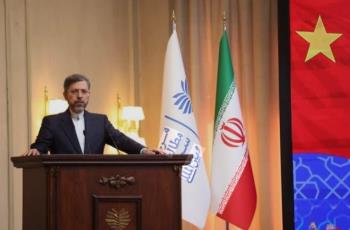Alwaght- Lebanese daily al-Akhbar has published a report in which it tackles the Israeli regime’s weakness in the face of security challenges against the backdrop of the recent wildfires.
According to the report, the wildfires that have been spreading for days in occupied Palestine have revealed the weakness of the Israelis’ ability to control natural disasters. The way the fires mushroomed until they reached housing units in cities and settlements indicated a weakness that was further highlighted when Tel Aviv issued calls for foreign aid to help it put the fires under control.
Had the fires broken out in any other place, they would not have received such international media attention. But considering the underlying significations of the Israeli practical ability to confront security challenges, which they claim they are well-prepared for, the news is under the spotlight.
Natural disasters, including wildfires, spare no one but in the Israeli case they take on different meaning. Despite all of the propaganda and drills throughout the past ten years, which aimed to reinforce the internal front against disasters, the Israelis have not been able to handle the situation properly, even making several mistakes in the process.
The report goes on to link this failure in handling the fires to future confrontations with the Lebanese resistance group Hezbollah.
In the event of a new war with Hezbollah, fires will inevitably result from the thousands of rockets that will be launched by Hezbollah fighters.
Observers believe the inefficiency exhibited in putting out the fires this week is a reflection of future performance regardless of the cause of the flames.
According to latest Israeli estimations, the “next war in confronting Hezbollah will see the landing of 1500-2000 rockets in Israel per day, compared to 150-180 rockets per day during the Second Lebanon War, 10 years ago.”
Al-Akhbar further asserts that, in a future war, the Israeli regime will not be capable of extinguishing the fires caused by the missiles since the attacks will be successive, in addition to the priority of focusing on evacuations and damage-control which inevitably lead to financial repercussions.
Only days before the fires, the Israeli Occupation Forces announced the nationwide Home Front Drill would be held the following week.
The drill, dubbed “Standing Firm,” was reportedly intended to prepare “Israel’s civilian home front for emergency situations, and will include extensive training for Israel’s future war with Hezbollah.”
“The IDF’s estimates in preparation for the exercise reveal that the next war will be relatively more destructive than previous confrontations between the two sides, but not the apocalyptic scenario envisioned by many,” David Daoud , an Arabic-Language Analyst at the Foundation for Defense of Democracies.
Oddly, these fires broke out as if to give a “test trial” for a hell scenario in a future confrontation between Israeli Occupation Forces and Hezbollah, according to al-Akhbar. Now it remains to be seen how the Israeli failure to confront fires as a natural disaster will be replicated when fires of another sort break out across the occupied territories.



























